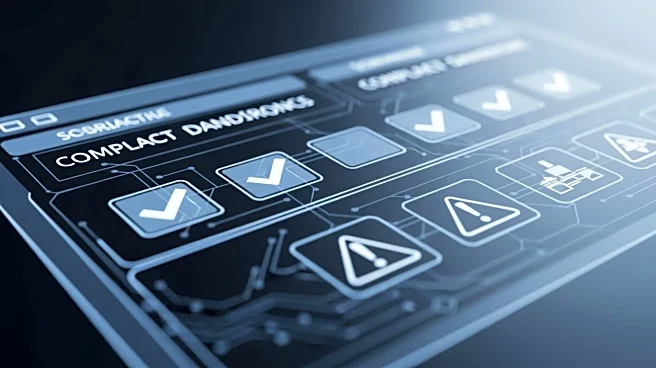What's Happening?
Cambridge Dictionary has selected 'parasocial' as its word of the year for 2025. The term describes a type of relationship where individuals feel a connection with someone they do not personally know,
including celebrities and artificial intelligence entities. Originally coined in 1956 by sociologists Donald Horton and Richard Wohl, the term has gained prominence in the digital age as social media users increasingly form these one-sided relationships with public figures and online personalities. The dictionary's announcement highlights examples such as singer Taylor Swift's engagement to NFL star Travis Kelce, which sparked widespread parasocial interest among fans. Additionally, the rise of AI chatbots like ChatGPT has contributed to the surge in parasocial interactions. Colin McIntosh, a lexicographer at Cambridge Dictionary, noted that the term reflects the current zeitgeist and the evolving nature of language.
Why It's Important?
The selection of 'parasocial' as the word of the year underscores significant shifts in how people interact with public figures and technology. These relationships can redefine concepts of fandom and celebrity, as well as influence how individuals engage with AI. The phenomenon raises questions about the nature of trust and loyalty in relationships that are inherently one-sided. As technology continues to evolve, the implications of parasocial interactions may affect social dynamics and mental health, with potential impacts on how society perceives and interacts with influencers and AI entities. The recognition of this term by Cambridge Dictionary highlights the growing importance of understanding these interactions in the context of language and societal change.
What's Next?
The acknowledgment of 'parasocial' as a significant term may lead to increased academic and public discourse on the implications of these relationships. Researchers and psychologists might explore the effects of parasocial interactions on mental health and social behavior. As AI technology advances, there could be further developments in how these relationships are formed and perceived. Public awareness and education about the nature of parasocial relationships may become more prevalent, potentially influencing how individuals engage with social media and AI platforms.
Beyond the Headlines
The rise of parasocial relationships presents ethical considerations regarding privacy and the authenticity of connections formed online. As individuals invest emotionally in these relationships, there may be a need for guidelines or support systems to address potential negative impacts. The phenomenon also highlights cultural shifts in how people seek connection and validation, potentially influencing media consumption and the role of influencers in society. Long-term, the evolution of parasocial interactions could reshape traditional notions of community and interpersonal relationships.









